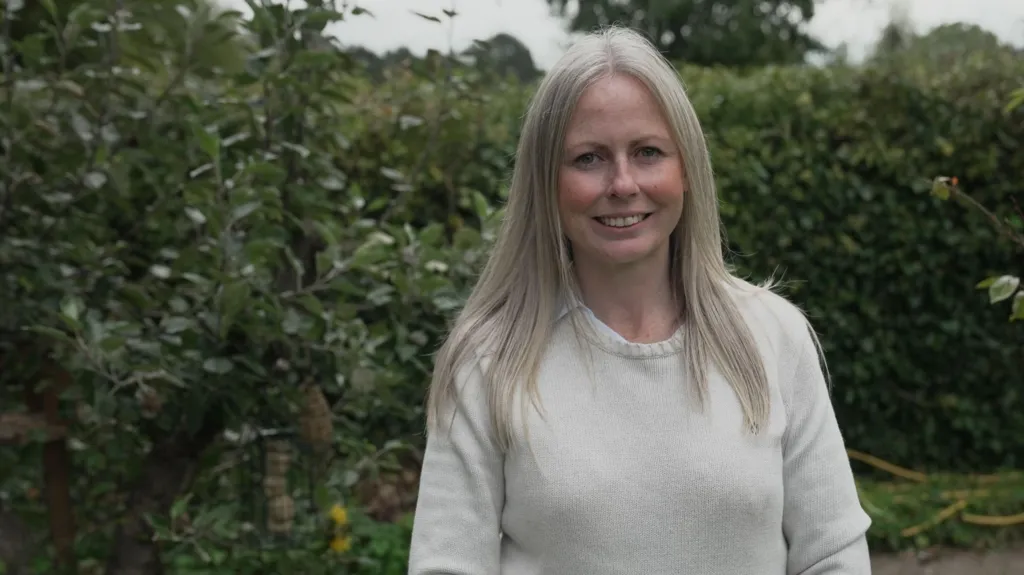For Emily Hough, nature often felt like a distant concept, detached from her reality and merely a view seen through a hospital window.
Her years spent frequently cycling through specialized mental health units in Birmingham and London, where she received treatment for an eating disorder that had plagued her since she was 12, left her feeling disconnected from the natural world and indifferent to the everyday plants and wildlife around her.
That changed five years ago when an occupational therapist at the hospital suggested an unconventional remedy: to cultivate a sunflower.
“I must admit, I had never planted anything before,” Ms. Hough remarked.
“However, when I planted that sunflower and observed its growth, nurturing it by watering and shielding it from the shade, I began to feel a connection for the first time. It allowed me to truly appreciate my surroundings and understand how I could positively impact nature – and in turn, how nature could benefit me.”
At the time, she was still hospitalized, which limited her experiences. Fast forward five years, and her journey has transformed dramatically.
Today, at 35, Ms. Hough has fully embraced what the NHS refers to as “green social prescribing.” This initiative enables GPs and health care providers to refer patients to various organizations that offer nature-based activities like hiking, birdwatching, rockpooling, or maintaining community gardens.
This complementary approach to traditional treatments has become an essential component of the government’s decade-long strategy for the NHS in England.
Although the program may not suit everyone, Ms. Hough, who has since moved from Solihull to the countryside, has experienced substantial benefits.
No longer hospitalized, she now holds the title of “Expert by Experience” (EbE) within the NHS – someone who leverages personal experience to help design and assess new health services.
She contributed to the development of the Royal Society for the Protection of Birds (RSPB)’s flagship “nature prescription” initiative for the West Midlands, which was launched earlier this year.
On Friday, coinciding with World Mental Health Day, the lottery-funded program celebrated the training of its 100th health professional and announced sufficient resources to assist 1,000 patients in accessing nature-oriented activities.
However, the future of green social prescribing remains uncertain.
Despite a successful four-year national pilot that concluded in March and was positively evaluated during its initial two years, there are worries that the financial responsibility for these programs is shifting to charitable organizations.
Groups like The Wildlife Trusts, the RSPB, and the Ocean Conservation Trust are urging the government to allocate more funds toward nature prescription initiatives and to expand them beyond the original seven trial locations.
Dom Higgins, head of health and education at The Wildlife Trusts, stated: “It is indisputable that nature enhances mental health.
“The time for debating the evidence has passed; both policymakers within the NHS and others in the sector understand this.
“What we need now is a reliable system to ensure widespread access. It’s crucial to prioritize funding for preventive measures and create opportunities for individuals to foster well-being in their communities.”
The national pilot program prescribed nature-based activities to nearly 8,500 individuals in its first two years, with over half of those patients coming from economically disadvantaged backgrounds.
Chris Dayson, a professor specializing in voluntary action, health, and well-being at Sheffield Hallam University, who was part of the evaluation team, noted that the initiative produced a “statistically significant improvement in well-being” among patients.
The evaluation also revealed an economic and social return of £2.42 for every £1 invested, primarily by aiding individuals in re-entering the workforce.
When contacted by the BBC, the government did not provide comments regarding the future of green social prescribing but indicated that the evaluation results for the last two years of the trial would be released “in due course.”

